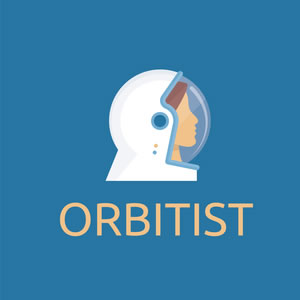
5 Things Every Entrepreneur Wished They Knew When They Began Their Start Up
Everyone has to start somewhere. Unless you have a business mentor guiding you every step of the way, you have questions. Small business owner Nick Gunner knows all about the journey and will be speaking about his experiences on November 16th in McEwen 209, at 5pm. When his startup, Orbitist, began it was just an idea of digital guided tours and media, but soon, with a little motivation and opportunity, he made it a viable business with a brick and mortar headquarters in Western New York.
Did Not Identify Their Target Market
When people begin a business, they develop ideas based off of their interests. The end consumer is a distant thought that will come together once the business is ready for revenues. When entrepreneurs get to that point they often do not know where to start. In this article, I will take you through an abridged version of market identification 101:
- First you need to determine who your end user/consumer is. This is the broadest of categories. For example if you have a tour company, your market would be anyone who travels to places where you offer tours.
- The second step would be to break down the markets through segmentation. The most typical type of segmentation is with demographic information such as sex, age, family size, income, location, etc. Even though you would love to sell to everyone, your resources are limited and finding the most efficient way to get your message out will save you a lot of time and money that could be used building your empire.
- Finally, you need to research the markets you have segmented in order to find out what they want and how to better deliver it to them. This is done through the collection of primary data, like surveys that measure Q Scores, and through secondary data, like finding your industry's benchmarks in order to match and exceed them.
Knew More about Digital Technology
"Coding" is king. Nick Gunner emphasizes the experience with digital technology is not just a plus, but a must if you want to be competitive in today's job market. Coding is a fundamental skill used in all digital platforms. Having a degree or experience in coding almost guarantees you a job in the technology sector. The salary of an Application Programming Manager ranges from $110,000 to $140,000 annually. If you know how to code you could save a monstrous amount of money, a limited resource in many start-ups. Being educated on less technical aspects is useful as well. Being educated on social media insights or search engine marketing can help get your business in front of the right people.
Try and Take Everything On Themselves
Being your own coder, marketer, salesperson, content producer, web designer and CEO sounds like something most people could not accomplish. Running a business by yourself is nearly impossible, especially when the business grows beyond your ability to do everything by yourself. At this point, it is most likely true that your startup has limited funding to hire full time staff. Other avenues you should explore in order to get what you need include-- places such as the Fredonia Technology Incubator. Incubators are there to help small businesses grow. Not only do they offer low-cost office space, but they can also assist in finding interns to help in area of need. For example, a finance intern can help with your books while a marketing intern can assist in your social media campaign. The incubator is also in a network of other SUNY incubators, which can help you take the steps you need to further your projects.
How to Find Sources of Funding
After you come up with your business plan, and have a team set up you are going to need funding for your projects. Where and who do you get funding from? There are government programs specifically designed to help small businesses reach the next level of development. Small Business Innovation Research (SBIR) or Small Business Technology Transfer (STTR) are programs in New York that do just that. SBIR is a program that sets aside 3% of the R&D budget of 11 Federal agencies to be awarded through contracts or grants to support small businesses. Buffalo companies have received nearly $20 Million from 2011-2014. STTR is a program that facilitates cooperative R&D between small businesses and research institutions. They try to increase the commercialization of research innovations; this is perfect for startups that have no paradigm for success that can be projected in a business plan. Both of these options have three phases and are awarded to a winner in a highly competitive field of applicants. Realistically, you have an 8-20% chance of getting selected if you have all your ducks in a row when you apply.
Things Go Wrong All the Time, You Must Persevere
I will leave you with some words of wisdom from Nick Gunner:
"It seems obvious, but starting a business is just a lot of 'continuing to work on it'. Things are never right but you just have to do your best and keep improving. To think that you're going to write a business plan and actually follow it is a fantasy. You have to just know that constantly adapting and improving is part of the process. If you doubt your ideas, that's good... you're doing it right... just keep working at it. Be open to changing direction, and find new ways to provide customers, maximum value. Slowly over time, things will improve."
Nick Gunner, Chief Platform Engineer, Lead Designer, Orbitist LLC
Web: orbitist.com
Phone: 716-410-3261
E-mail: ngunner@orbitist.com
Twitter: @nicholas_gunner

Article written by:William Adorno of Ornament Towers Production Co.
